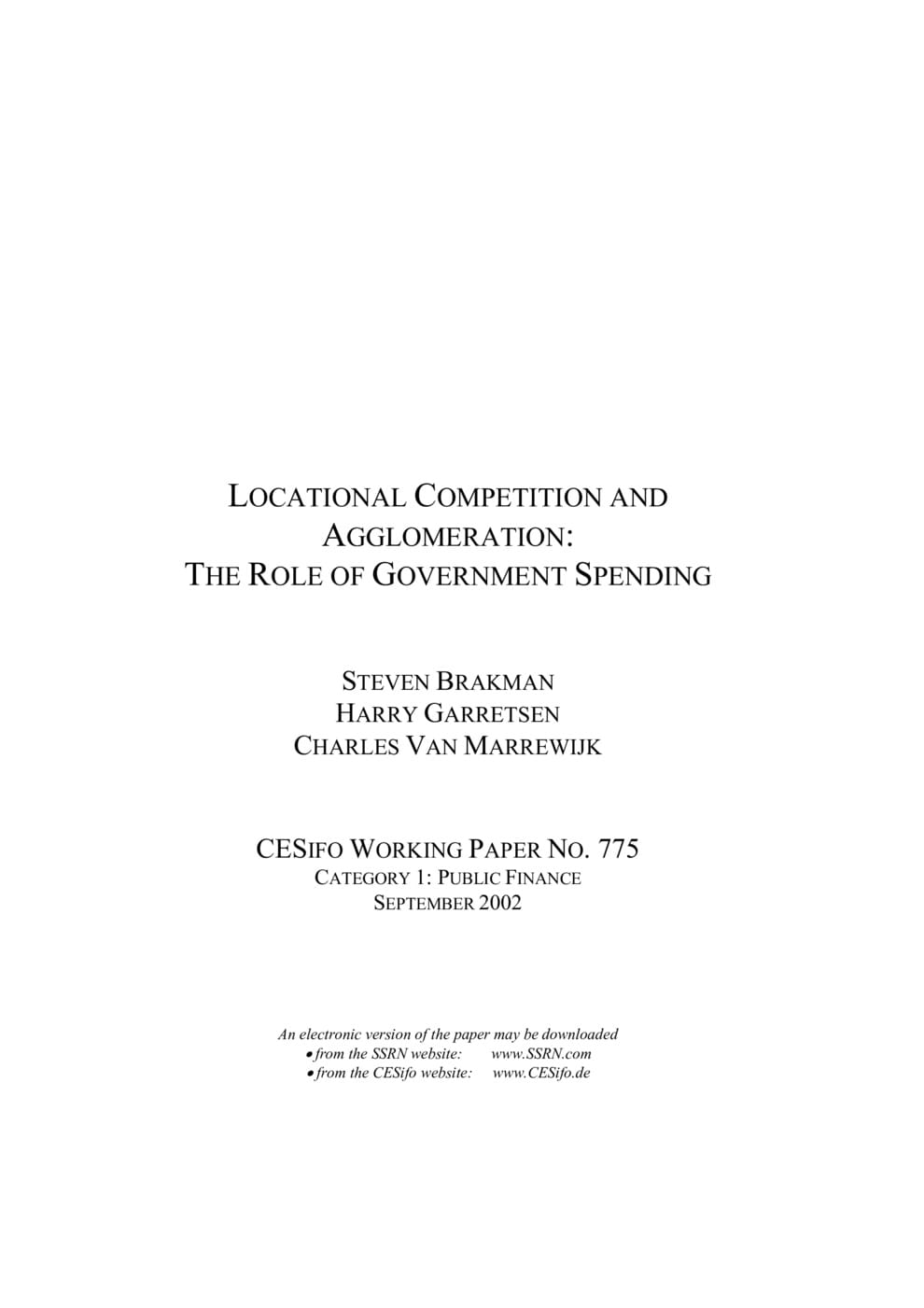Locational Competition and Agglomeration: The Role of Government Spending
CESifo, Munich, 2002
CESifo Working Paper No. 775

With the completion of EMU, tax competition and, more in general, locational competition is high on the EU policy agenda. In contrast to the standard neo-classical reasoning, recent advances in the theory of trade and location have shown that tax competition does not necessarily lead to a ‘race to the bottom’. In these recent discussions the relevance of government spending as an instrument for locational competition is unduly neglected. We therefore introduce a more elaborate government sector in a geographical economics model by analyzing government spending and government production. By changing the relative size, direction or efficiency of the production of public goods, our simulation results show that governments can change the equilibrium between agglomerating and spreading forces. In addition, we show analytically that the introduction of public goods fosters agglomeration. Ultimately, our paper shows that by restricting attention to taxes, one ignores that government spending also determines the attractiveness of a country as a location for the mobile factors of production.
Public Finance